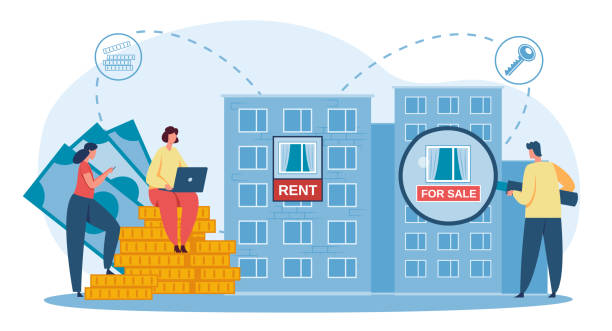Owning a holiday let can be financially rewarding, but the associated costs—such as maintenance, repairs, and utilities—can quickly add up. Fortunately, there are strategies to reduce your tax bill and maximize profits. In this guide, we’ll explore how to be more tax-efficient when managing a holiday rental.
Limited Company vs. Sole Trader: Which is Best for Holiday Let Landlords?
Choosing between operating as a sole trader or setting up a limited company is crucial. Your decision will depend on your individual circumstances and financial goals.
Operating as a Sole Trader
As a sole trader, there is no legal distinction between you and your business. You’ll need to report all profits on your tax return and pay taxes based on your income bracket—regardless of whether you withdraw funds from the business.
Pros:
-
Simpler reporting and tax responsibilities.
-
Direct control over all business decisions.
Cons:
-
All business debts and liabilities are your personal responsibility.
-
Potentially less tax-efficient for higher earners.
Operating Through a Limited Company
Forming a limited company involves more complexity but offers distinct advantages. The company pays Corporation Tax on profits, allowing you to retain earnings within the business and defer personal tax liabilities.
Pros:
-
Limited personal liability for business debts.
-
More flexibility in paying yourself (salary, dividends).
-
Potentially more tax-efficient for higher earners.
Cons:
-
More administrative tasks and regulatory requirements.
Understanding Capital Gains Tax on Furnished Holiday Lets
Capital Gains Tax (CGT) applies when you sell an asset for a profit. Previously, many furnished holiday let owners qualified for Business Asset Disposal Relief (BADR), allowing them to pay a reduced CGT rate of 10%. However, starting April 6, 2025, this relief will be phased out, and owners will face standard residential CGT rates of 18% for basic rate taxpayers and 24% for higher rate taxpayers.
Claiming Expenses on Your Holiday Let
One effective way to reduce your tax bill is by claiming expenses associated with your holiday let. When you report these expenses on your tax return, they will be deducted from your taxable income.
Claimable Expenses Include:
-
Repairs and maintenance
-
Marketing fees
-
Utility bills
-
Housekeeping services
-
Insurance costs
Consult with your accountant to ensure you’re claiming all eligible expenses.
Tax Relief on Mortgages and Loans
If you’re a residential property owner, you can claim tax relief on mortgage interest and loan repayments. However, this relief is capped at 20%. For Furnished Holiday Let (FHL) landlords, the cap will not apply until April 2025, allowing you to claim the full interest amount during this period.
Capital Allowances for Holiday Lets
Capital allowances enable you to deduct the cost of certain assets from your profits before tax. As a holiday let landlord, you can claim these deductions for items such as:
-
Furniture (e.g., sofas, beds)
-
Fixtures (e.g., kitchens, bathrooms)
-
Essential features (e.g., heating, air conditioning)
While capital allowances aren’t granted automatically, they can significantly reduce your tax bill. If you’ve made past purchases without claiming, you may still be eligible for writing down allowances, spreading the tax relief over several years.
Splitting Profits with Your Spouse
If you co-own a holiday let with your spouse, you’re not obligated to split profits equally. You can distribute profits in a way that minimizes your overall tax liability. For example, if one partner earns significantly more, you could allocate profits 60/40 or 70/30.
Business Rates vs. Council Tax
As a furnished holiday let is classified as a business, you will pay business rates instead of council tax. Typically, business rates are lower, resulting in potential savings. Additionally, you may qualify for small business rates relief, which can reduce your business rates significantly or even exempt you from them entirely, depending on your property’s rateable value (usually under £15,000).
Conclusion
Navigating the tax implications of running a holiday let can be complex, but understanding your options can lead to significant savings. Whether you decide to operate as a sole trader or through a limited company, claiming eligible expenses, and taking advantage of capital allowances can help maximize your profits. Always consult a qualified accountant to ensure you’re making the most informed decisions for your specific circumstances.
By implementing these strategies, you can effectively reduce your tax burden and enjoy the financial rewards of your holiday let investment.
If you are looking for an accountant to help you with your queries related to your business accounts, Call at 020 35765107 or send a message to book a free consultation. Learn more about our online accounting services and pricing.




